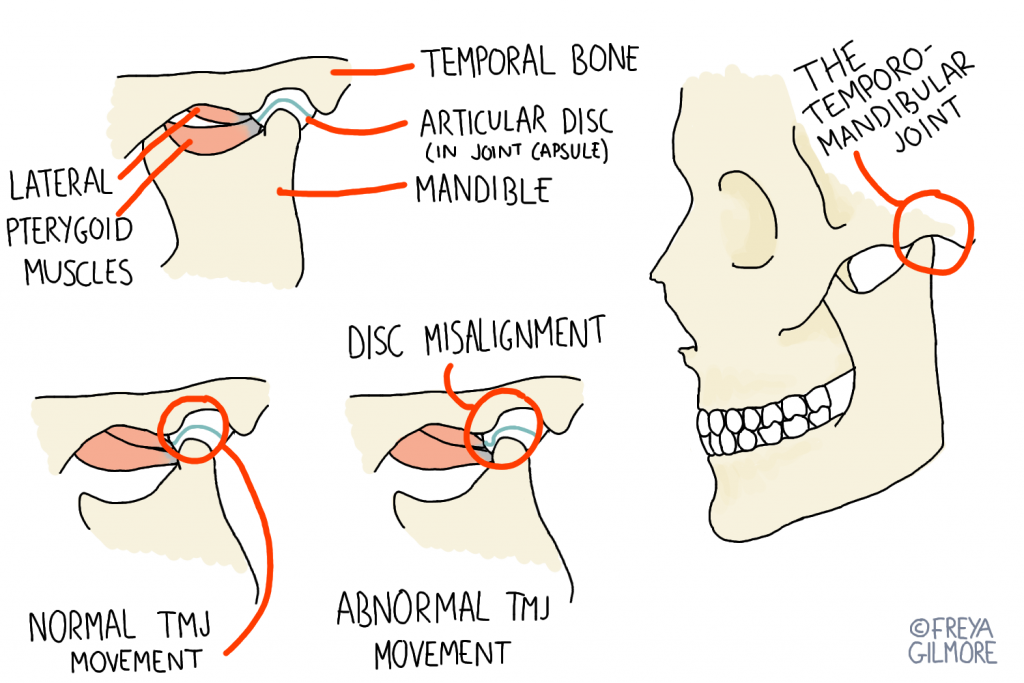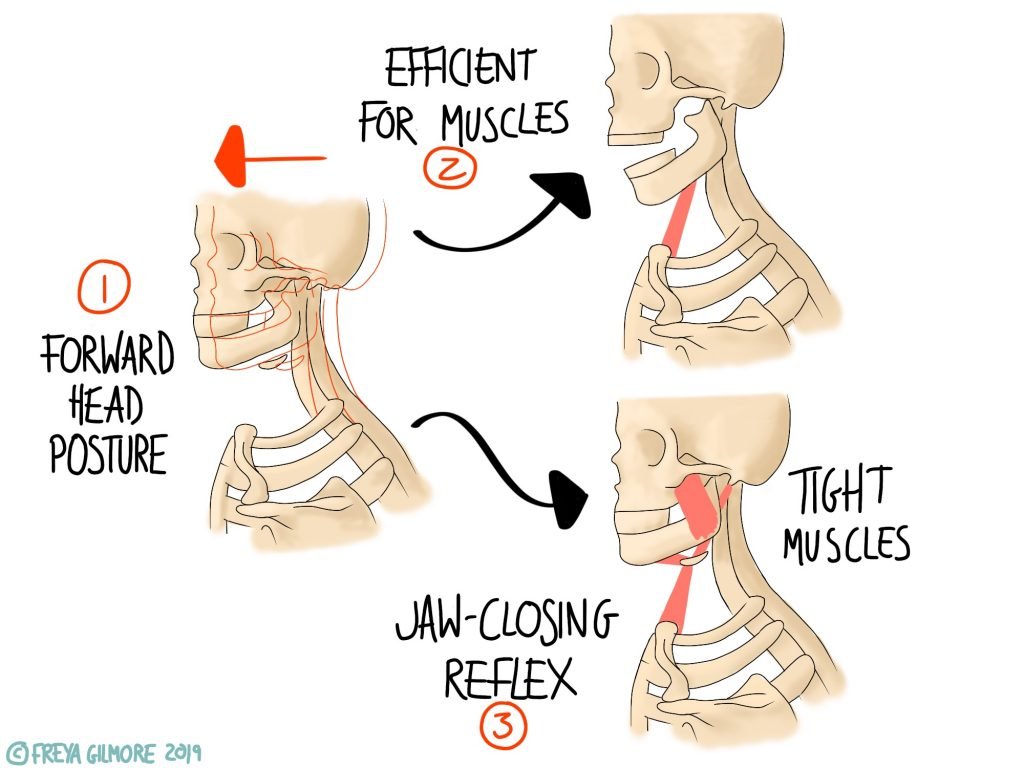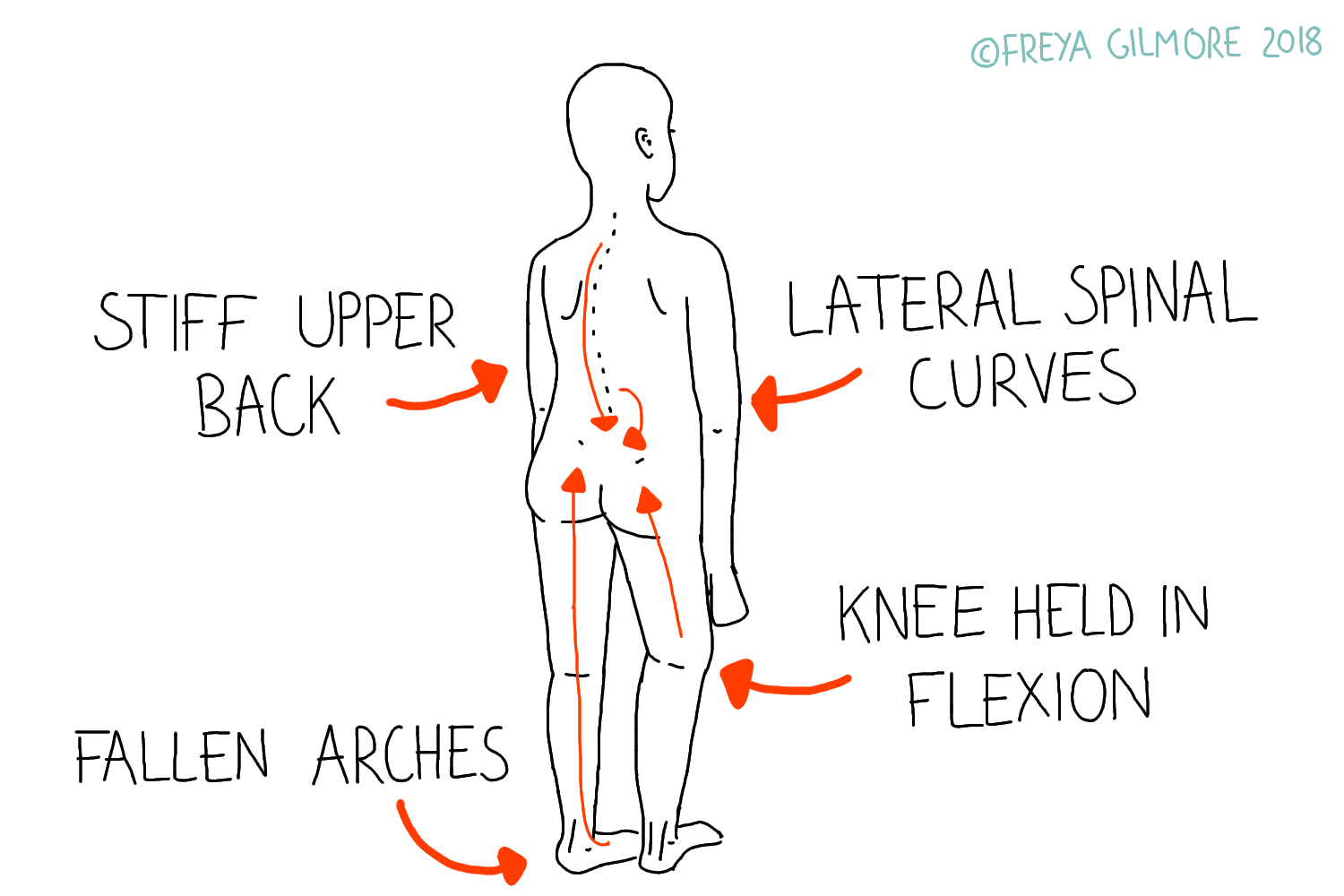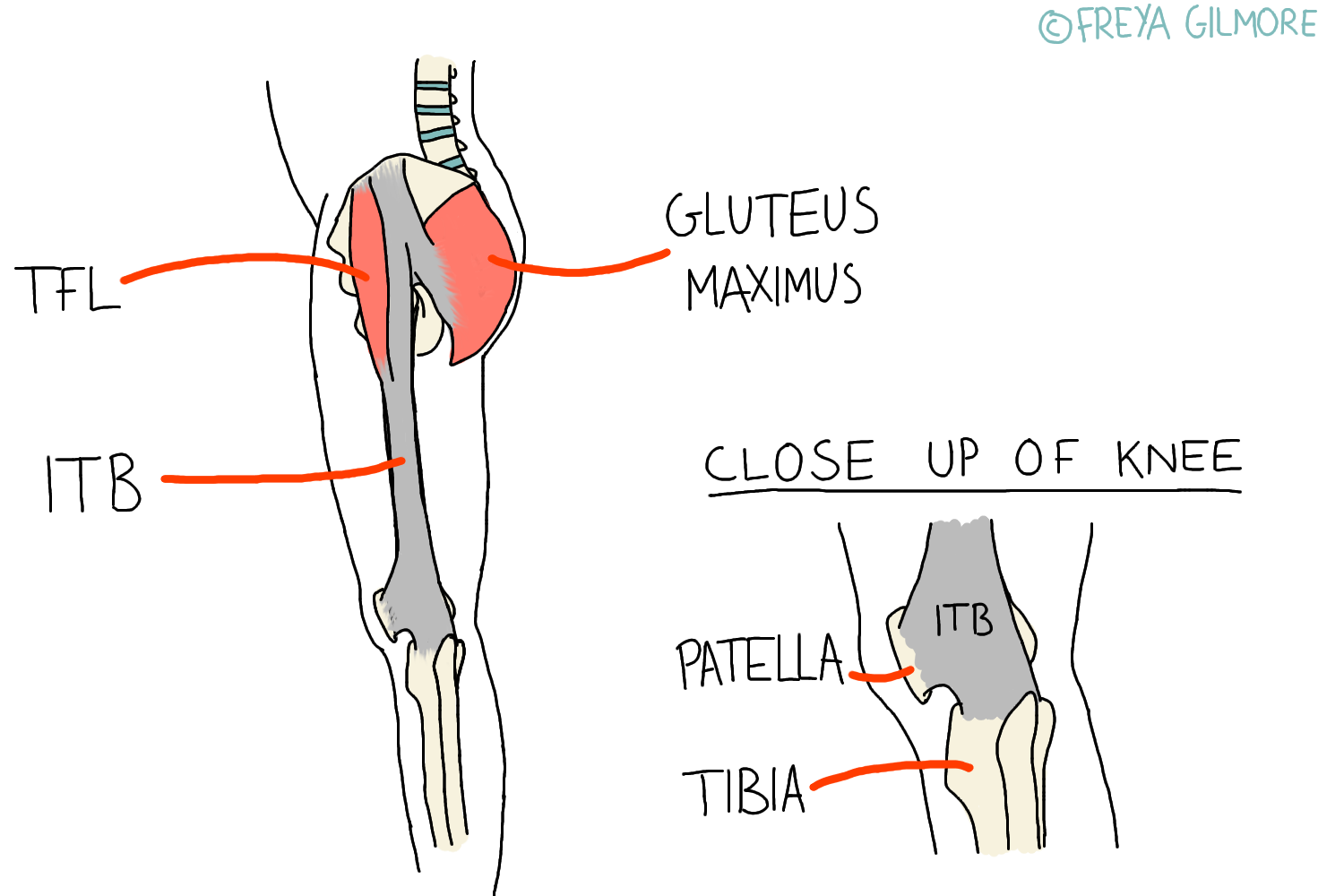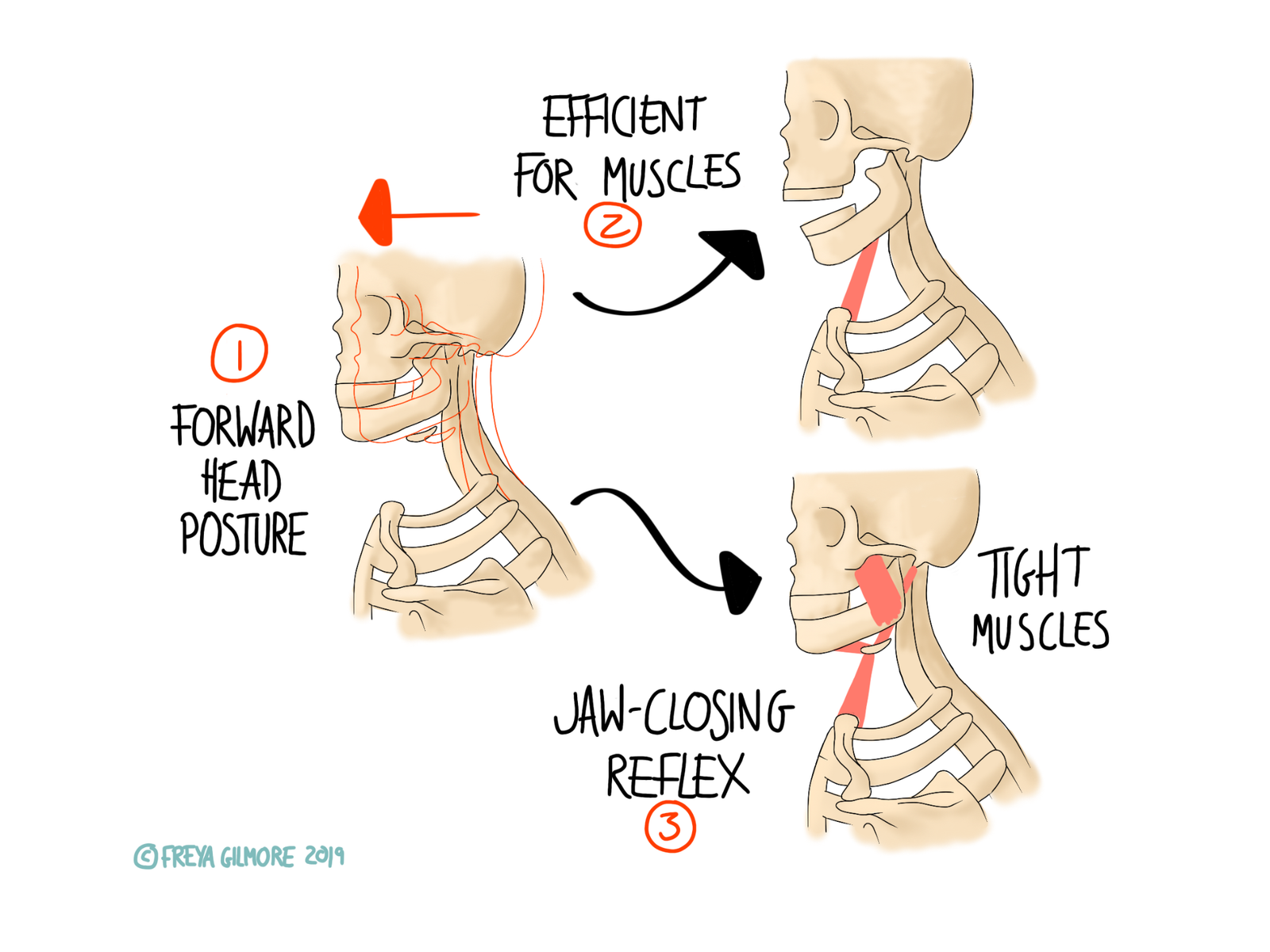Osteopaths understand that everything in the body is connected. This even goes beyond muscles, joints,…

The TMJ: jaw pain and clicking
The jaw joint is formally known as the TMJ: the temporomandibular joint. Like any other joint it can become dysfunctional, but people often don’t know who to turn to for help. Both your dentist and your osteopath are able to work with this joint. It’s not uncommon for a patient to only mention their jaw problem while being treated for another ailment, but you absolutely can book in for jaw pain alone! Even if it just feels like something minor, it can be worth mentioning in case it links to another area.
TMJ problems can be painful or just irritating, like a loud clicking when eating. Both of these can be related to the disc inside the joint. Like in the knee and spine, the TMJ has a disc of cartilage in the joint that cushions the bones that make it up. The disc is attached to some of the muscles in the cheek, and if they are tight, they can pull on the disc and cause it to fold. This is a common cause of a clicky jaw and it can be as straight forward as it sounds!
Causes of TMJ problems
Direct trauma to the jaw can cause lasting problems. Head injuries should be investigated by a doctor, but once immediate concerns are addressed, your osteopath can help with a check-up. The TMJ is a very mobile joint so is prone to over-compensating to protect itself after injury. Getting the movement back to where it should be will calm the area down, allowing the muscles to function normally again and the joint to move more smoothly.
Major dental work can be quite traumatic to the jaw, particularly when the mouth has to be held open for a long time. Again, the muscles tend to react to this and are prone to holding the whole area tight after the procedure. If they don’t relax off on their own, get your osteopath to have a look.
In a similar vein, untreated dental issues can affect the jaw. A sensitive tooth can be enough to change the way you chew, such as avoiding chewing on one side. This means the muscles on one side of the jaw are working harder than normal, and the opposite side is underworked. Because the two jaw joints are joined at the chin, they are very easily affected by one another. Addressing dental problems is important for a happy jaw.
The TMJ is not immune to arthritis, but like other areas of the body, it can be managed. Catching it earlier and addressing it is always the best course of action, but treatment at any time can help.
Stress, posture, and the jaw
Stress is a common factor for clicky jaws. It’s not uncommon to grit your teeth or even grind them overnight without realising it during times of stress. These kinds of behaviours come with overuse of the same muscles that can pull on the disc within the joint. Although your osteopath can’t fix the stressors in your life, they can help to manage the effects of them. Anxious patients may find that breathing exercises and treatment for the upper back and ribs can ease the burden on the jaw. This makes sense when you understand how the jaw is related to the neck and shoulders:
When the head is held in a neutral position, muscles in the neck and shoulders can work efficiently. However, when the head is held off centre, everything has to react. It can feel comfortable to let your head tilt back, putting a bit of a stretch through the front of the neck- and this is fine some of the time. But if this becomes your usual position, the muscles in the front of the neck pull on the jaw. Most people instinctively want to keep their mouth shut when they’re not talking or eating, so the muscles that work on the jaw have to work harder to close the mouth. These are the same muscles that act on the disc as mentioned before.
What to expect from a TMJ appointment
As with all joints, your osteopath has a few different techniques to help in the treatment room. Sometimes it may be appropriate to work inside the mouth, but of course you are free to decline any treatment. Other times external techniques will get to the root of the problem without trouble.
Evidence suggests that manual therapy may help with disorders of the TMJ.
If you have any problems that sound like they could be related to the TMJ, book in with Ravi today.

